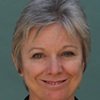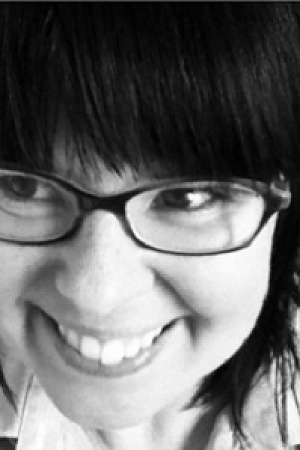States of Poetry 2017 - ACT | State Editor's Introduction by Jen Webb
The ACT – home to fewer than half a million people, and housing less than two per cent of the national population – is a very small community, but one that is interesting, energetic, and creative. It is not particularly representative of Australia; the people are, on average, a bit younger, more likely to be employed, earning a higher annual income, and significantly more likely to hold higher degrees than other Australians. And it is, of course, the federal capital, which means that its life beyond the Parliamentary Triangle is often overlooked by commentators on this community. Despite this, it offers a fertile ground for the writing and reading of poetry.
In preparation for the second issue of the ABR’s States of Poetry mini-anthology project, I cast about to find a range of poets working across the range of modes, forms, and voices found in the ACT. This meant attending a variety of poetry events and listening to and reading local poets. My task was made easier by the fact that my workplace, the University of Canberra, hosted the second of a three-year cycle of festivals, ‘Poetry on the Move’. Over 1,500 Canberrans and other poets participated as readers, performers, audience members, and panellists, in workshops, talkfests, and other events. This, along with the other regular poetry events held in the city and its environs, allowed me to listen closely to the voices of poetry, and to reflect on the state of poetry in 2016 Canberra.
The six poets selected for this year’s mini-anthology are at different stages of their literary careers, each with a different focus, aesthetic, and sense of audience. Several of them are influential public figures, making poetry happen and making it visible. All six are energetic contributors to the local literary ecology; and, public or more private, long established or emerging, all offer something rich and evocative in their practice and in their bodies of work.
Merlinda Bobis has been part of the ACT literary community, and resident here off and on, since the early 2000s. Merlinda, who writes in Bikol and Filipino as well as English, weaves phrasing and imagery from her first home, the Philippines, through her contemporary verse. She has a substantial practice as a performer, something evident in her poetry reading presented on this site.
John Foulcher is a long-term resident of the ACT, and an active member of the poetry community. He shifts confidently between prose poems and lineated poems, mixing narrative, imagery, and memory in what are often sharply moving works. I recorded his reading at his home in Canberra, and you will be able to detect, behind his voice, the hum and burr of this small city.
Geoff Page is the godfather of ACT poetry: not only has he published twenty-two volumes of his own poetry, but he has also been editor for a number of important local and national volumes, and has an extensive profile as an informed and thoughtful reviewer of new Australian poetry in and beyond the ACT. Geoff is also the motive force for the monthly poetry readings that have been held in Canberra for over a decade now, which profile visiting national and international poets, as well as local practitioners.
Kerry Reed-Gilbert is a Wiradjuri woman who is a leading figure in Canberra poetry, particularly in the contributions she makes to raising the profile of contemporary Indigenous and Torres Strait Islander poets. Like her famous father, Kevin Gilbert, she writes poems that present what can be a scathing critique of the politics of contemporary culture. But as well as the activist eye, Kerry explores her passion for land, culture, family, and humanity.
Melinda Smith is a long-term Canberra poet who came to national prominence when she won the 2014 Prime Minister's Literary Award. Since that point she has been even more visible in the creative community, and is a catalyst for poetry in the region. Not only is she very involved in writing and presenting her own poetry, but she also enriches the creative ecology of our region, collaborating with visual artists, and shaping the field in her role as the poetry editor of the Canberra Times.
Isi Unikowski came to my attention when he was shortlisted for the 2014 University of Canberra Vice-Chancellor’s International Poetry Prize. His selected poem was dense with imagery; like his subsequent poems, it blends the intellectual and the visceral. His work runs the gamut from modernist-style precision to what is almost comedic in its insider–outsider view of the field.
All six poets impress me with their focused approach to their practice and – equally important (to me) – to the poetry community. In a city state like Canberra/the ACT, it is less easy than in major population centres to remain invisible, or to attend only to one’s own concerns. Each of these poets has a body of work that is vibrant, well crafted, sometimes very funny, often deeply moving, and always worth reading. I commend them to you.








Leave a comment
If you are an ABR subscriber, you will need to sign in to post a comment.
If you have forgotten your sign in details, or if you receive an error message when trying to submit your comment, please email your comment (and the name of the article to which it relates) to ABR Comments. We will review your comment and, subject to approval, we will post it under your name.
Please note that all comments must be approved by ABR and comply with our Terms & Conditions.